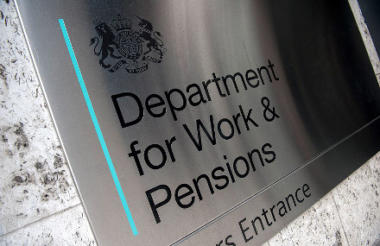A group of charity leaders have written to The Times, calling for an end to anti-advocacy clauses, which prevent charities delivering government services from campaigning.
The letter is a response to a front-page story in the paper, which claimed that the Department for Work and Pensions is blocking charities from raising concerns about its widely-criticised universal credit.
"We urge the government to end the use of anti-advocacy clauses across all government departments and strengthen the fundamental role that civil society plays in our democracy," the letter says.
"Civil society, and the people it serves, must be able to tackle the causes of problems, not just address the symptoms. We must be able to speak truth to power."
Charities have repeatedly campaigned against attempts by recent administrations to limit their ability to speak out, and in the past have succeeded in persuading government to water down an anti-advocacy standard which was due to be inserted into all grant agreements.
Signatories to the letter include:
- Vicky Browning, CEO, Association of Chief Executives of Voluntary Organisations;
- Craig Bennett, CEO, Friends of the Earth
- Kathy Evans, CEO, Children England;
- Claire Godfrey, head of policy and campaigns, Bond
- Julia Kaufmann, chair, Small Charities Coalition
- Amanda Khozi Mukwashi, chief executive, Christian Aid
- Polly Neate, chief executive, Shelter
- Paul Parker, recording clerk, Quakers in Britain
- Paul Streets, chief executive, Lloyds Bank Foundation for England & Wales
- Sue Tibballs, chief executive, Sheila McKechnie Foundation
- Debra Allcock Tyler, chief executive, Directory of Social Change
The letter in full
Sir, Your report on Department for Work and Pensions contracts highlights once again how the use of anti-advocacy clauses in government contracts has the potential to prevent civil society speaking out on behalf of vulnerable people. This is not new: civil society leaders have been challenging the use of anti-advocacy clauses for some years.
Civil society does not exist solely to provide services. It is also there to give voice to the concerns of those people who often go unheard. It addresses the root causes of issues, bringing frontline experience and knowledge to help to shape policy and bring about change.
History has shown how important this is. Advocacy has changed minds and improved lives, from the introduction of the smoking ban to the plastic bag tax. Universal credit affects the lives of thousands, and it is more important than ever that charities are free to represent a range of voices.
We urge the government to end the use of anti-advocacy clauses across all government departments and strengthen the fundamental role that civil society plays in our democracy. Civil society, and the people it serves, must be able to tackle the causes of problems, not just address the symptoms. We must be able to speak truth to power.
|
Related articles











